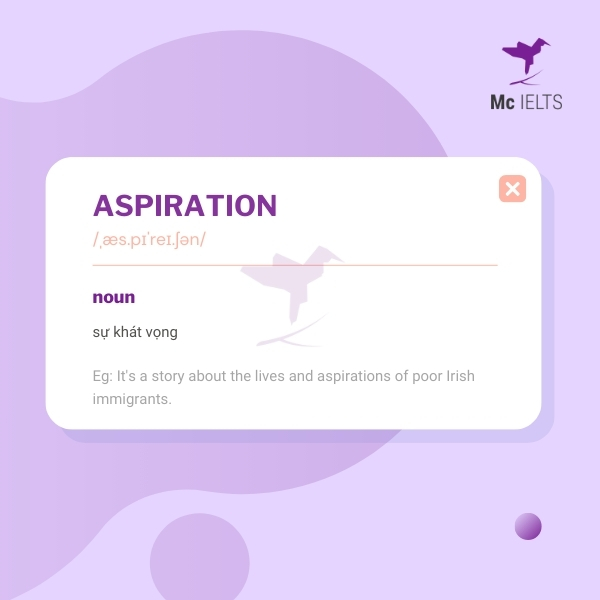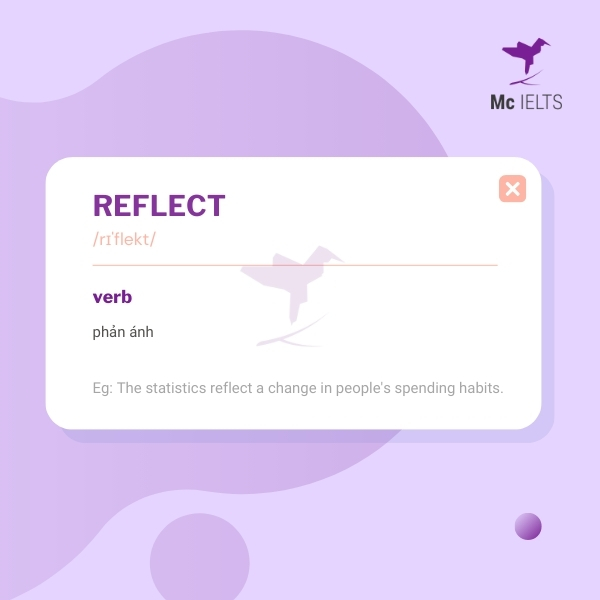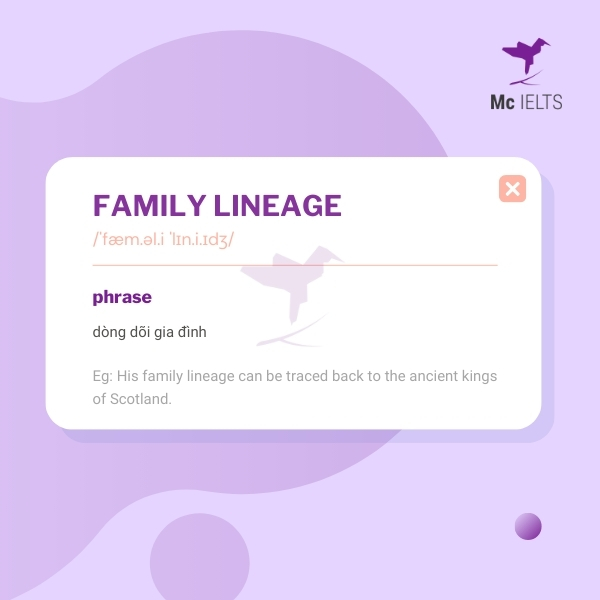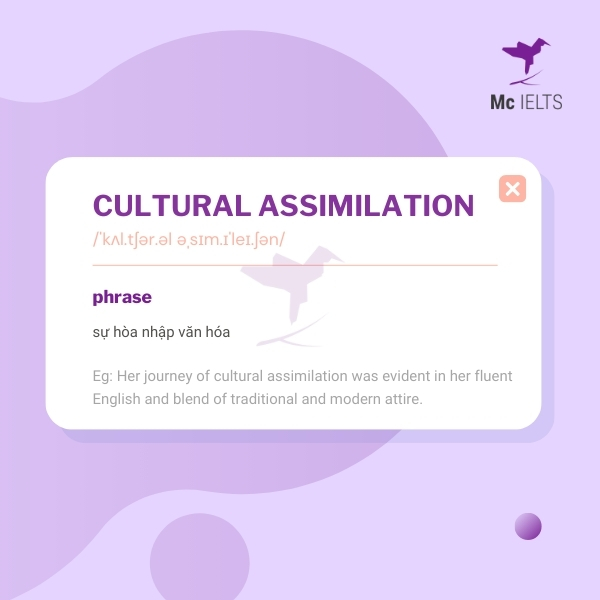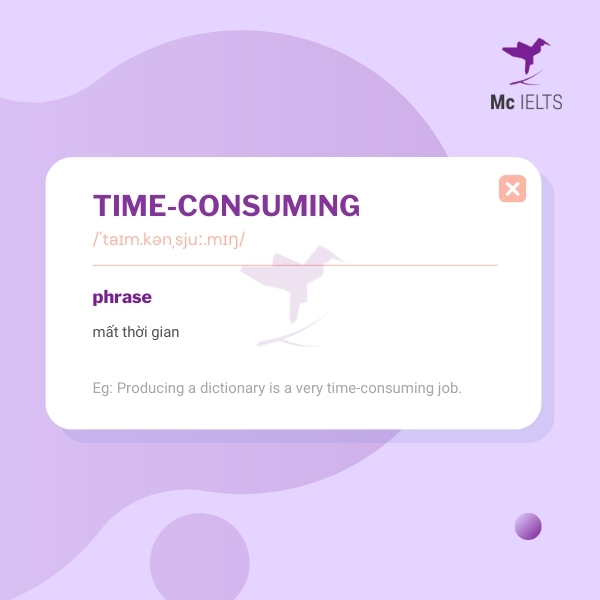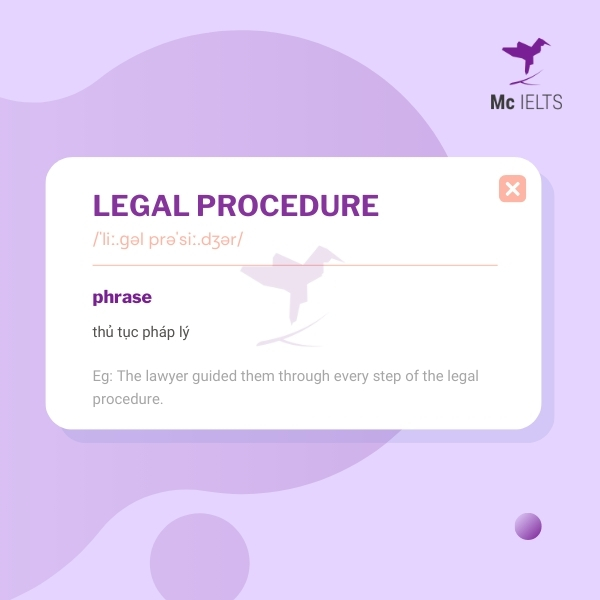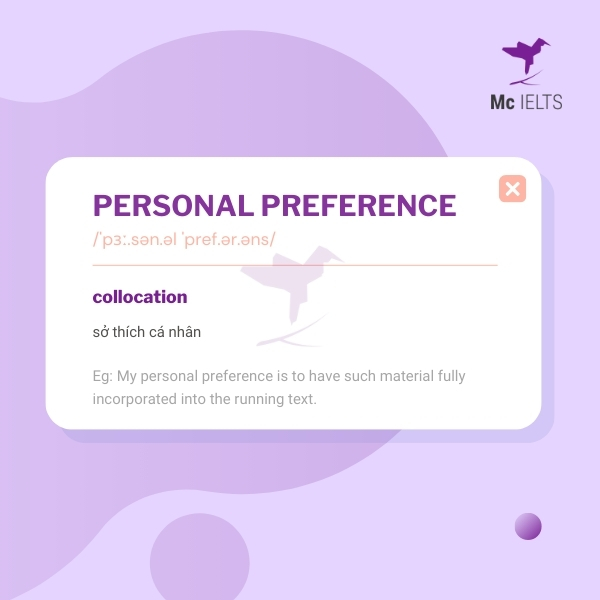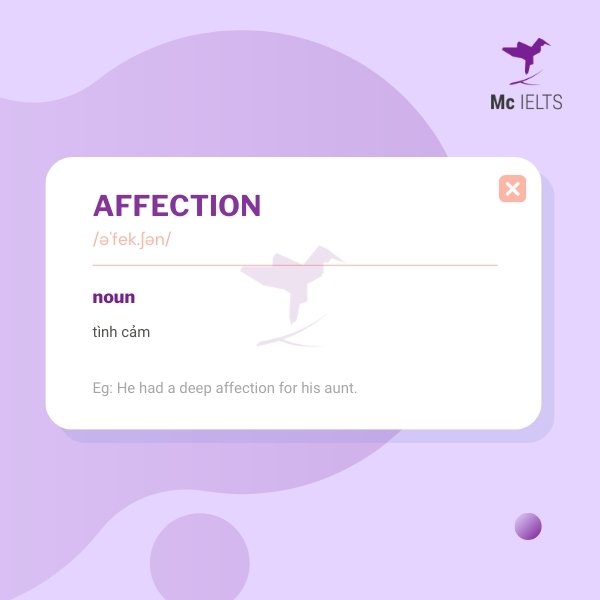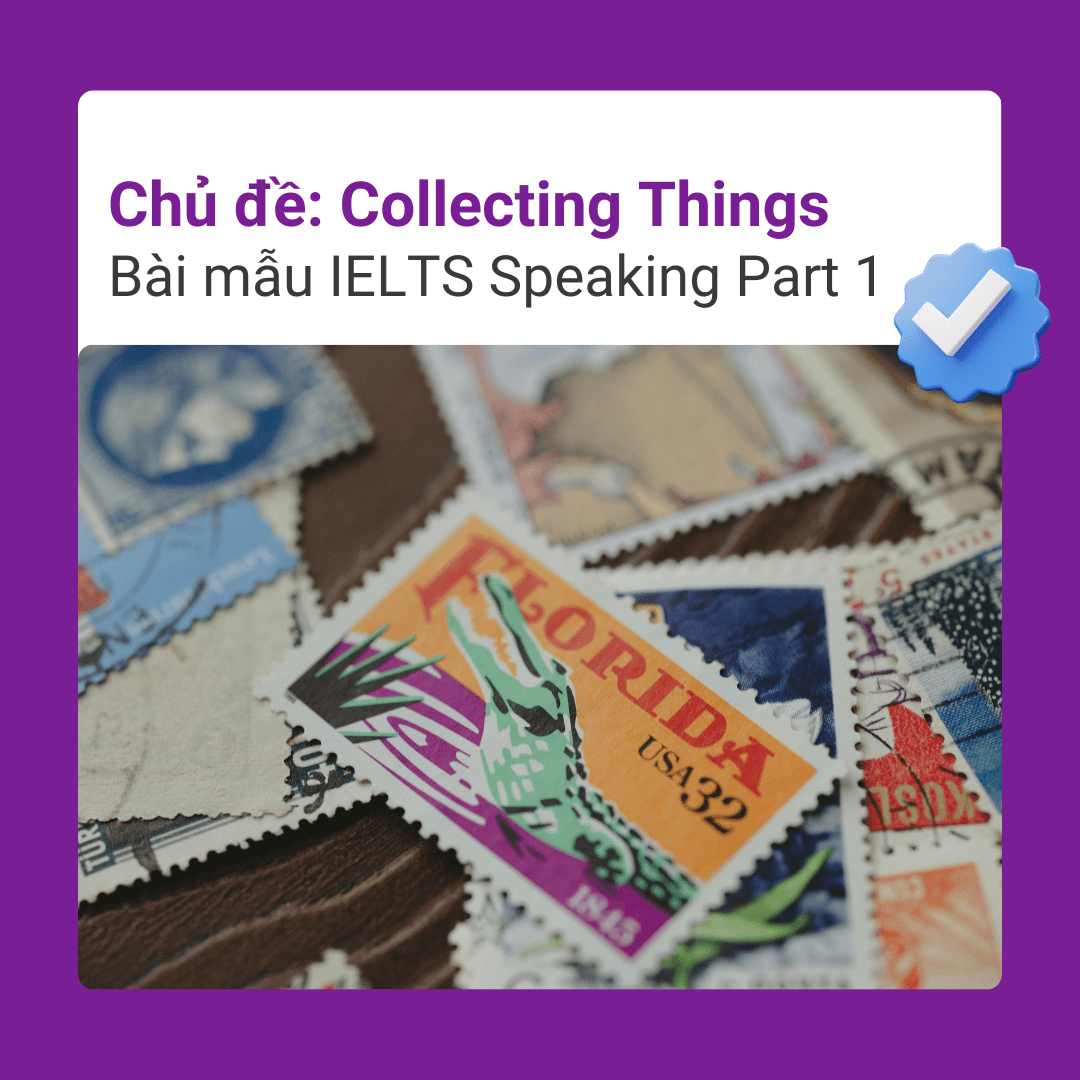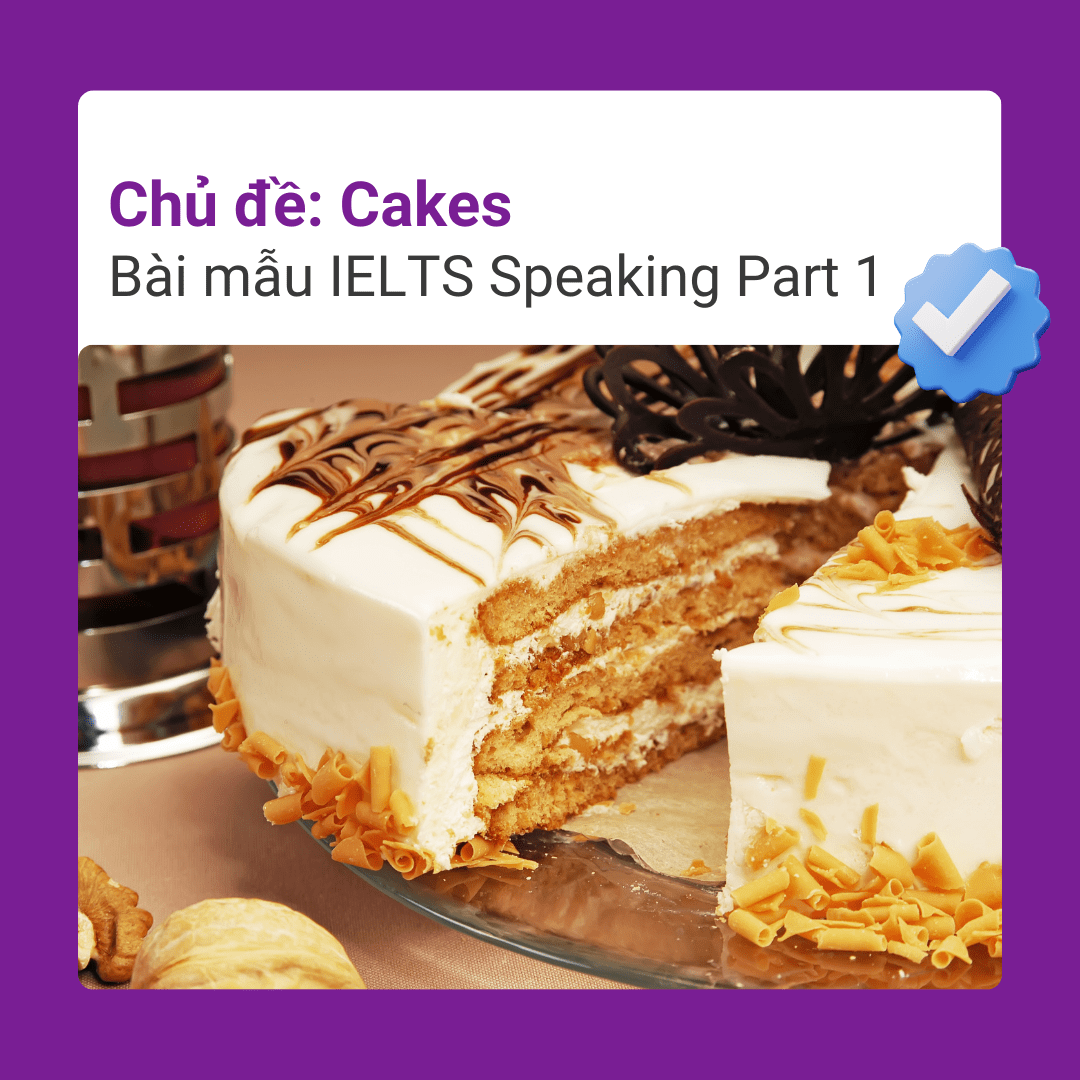Đề bài, bài mẫu IELTS Speaking Part 1 chủ đề: IELTS Name
 19/06/2024
19/06/2024
 Tác giả : Mc IELTS
Tác giả : Mc IELTS
Chủ đề IELTS Name trong phần thi Speaking Part 1 sẽ là cơ hội để bạn giới thiệu bản thân và giúp bạn tạo ấn tượng đầu tiên với giám khảo. Do đó, một câu trả lời tự nhiên, mạch lạc và sử dụng từ vựng chính xác có thể giúp bạn ghi điểm ngay từ đầu. Trong bài viết này, Mc IELTS sẽ cung cấp cho bạn các đề bài phổ biến và bài mẫu “ghi điểm” để bạn luyện tập. Hãy cùng khám phá cách trả lời thông minh và ấn tượng cho chủ đề này, giúp bạn tự tin hơn khi bước vào phòng thi.
| Key takeaway |
Câu hỏi Topic IELTS Name Speaking Part 1:
Những từ vựng liên quan đến chủ đề IELTS Speaking about Name: Nickname, Surname, Moniker, Alias, Destiny,… |
Tổng hợp các câu hỏi chủ đề IELTS Name Speaking Part 1
Phần 1 Topic Name IELTS Speaking thường bắt đầu với những câu hỏi về tên và thông tin cá nhân để giúp thí sinh thoải mái hơn. Những câu hỏi này tuy đơn giản nhưng lại là cơ hội để bạn thể hiện sự tự tin và khả năng giao tiếp tự nhiên của mình. Mc IELTS đã tổng hợp các câu hỏi phổ biến về chủ đề Name, nhằm giúp người luyện thi IELTS chuẩn bị kỹ lưỡng và sẵn sàng cho phần thi mở đầu.

IELTS Speaking Questions about Name
Những chủ đề cụ thể là:
- Do you like your name?
- Who gave you your name?
- Would you like to change your name?
- Is there any tradition about naming babies?
- Who usually names babies in your country?
- Does your name have any special meaning?
- What kinds of names are popular in Vietnam?
- Is it easy to change your name in your country?
- Is your name common or unusual in your country?
- What names are the most common in your hometown?
- Do you have any special traditions about naming children?
- Does your name have any particular (or, special) meaning?
- In your country, do people feel that their names are very important?
- Are there many Vietnamese people who have the same name as you?
Câu trả lời mẫu chủ đề IELTS Name Speaking Part 1
Trong phần 1 của Topic IELTS Speaking Questions about Name, các câu hỏi về tên của bạn thường xuất hiện để khởi đầu cuộc trò chuyện và giúp giám khảo làm quen với bạn. Mặc dù đây là phần dễ nhất, nhưng việc trả lời một cách tự tin và mạch lạc sẽ tạo ấn tượng tốt ban đầu. Nội dung dưới đây sẽ cung cấp những câu trả lời mẫu giúp bạn luyện thi IELTS từ cơ bản, nắm vững cách diễn đạt tự nhiên và chính xác, từ đó ghi điểm cao ngay từ phần mở đầu.

Câu trả lời mẫu topic Name IELTS Speaking
Who gave you your name?
My parents gave me my name, Thanh Cong. It’s chosen with careful consideration for its meaning and cultural significance. In Vietnamese, “Thanh Cong” translates to “success” or “achievement,” signifying their hopes and aspirations for my future.
Từ vựng:
Does your name have any particular (or, special) meaning?
My uncle, a well-respected businessman, inspired my parents when they chose my name, Thanh Dat. They hoped that his success would be reflected in my life. My name is a traditional Vietnamese name with a special meaning, carefully selected to embody their aspirations for my future. It’s a constant reminder of their hopes for me to follow in my uncle’s footsteps.
Từ vựng:
Are there any differences between how Vietnamese people name their children now and in the past?
Yes, there have been some notable shifts in Vietnamese naming practices over time. In the past, names were often chosen based on traditional values, family lineage, or even astrological beliefs. Nowadays, while tradition still plays a role, parents are increasingly opting for names that are modern, unique, or have international influences.
Từ vựng:
Does anyone in your family have the same name as you?
No, I don’t have any immediate family members who share the same name as me. It’s quite common in Vietnamese families for siblings or cousins to have similar-sounding names, but my parents chose a name for me that stands out within our family. They wanted my name to be unique and reflect their individual hopes and dreams for me.
Từ vựng:
In your country, do people feel that their names are very important?
Yes, in our culture, names hold significant importance. They’re not merely labels but are believed to influence a person’s character and destiny. The selection of a name for a child is a thoughtful process, often involving family elders and consultations with fortune tellers or astrologers.
Từ vựng:
Would you like to change your name?
I’m quite content with my given name and don’t feel any urge to change it. It carries personal and cultural significance for me, and I’ve grown attached to it over time. However, I understand that some individuals might have different reasons for wanting to change their names, such as personal preference or cultural assimilation.
Từ vựng:
Is it easy to change your name in your country?
Although it’s not impossible to change one’s name in Vietnam, the process can be quite bureaucratic and time-consuming. It requires legal procedures and documentation, and there are specific conditions under which name changes are allowed. It’s not a decision taken lightly by most people.
Từ vựng:
Does your name have any special meaning?
Yes, as I mentioned earlier, my name carries a special meaning in Vietnamese culture. It’s a name associated with positive qualities and aspirations, reflecting my parents’ hopes for my future. “Thanh Cong” signifies success and achievement, so it inspires me to strive towards becoming a well-respected and accomplished individual.
Từ vựng:
How would you choose names for your next generation?
Oh, I haven’t thought about that, honestly, because I’m not married yet. However, if I were to have children, I’d likely combine tradition and personal preference when choosing their names. I’d like to honor my cultural heritage while selecting names that sound beautiful and have positive meanings.
Từ vựng:
What do your friends call you?
In fact, it’s a common practice in Vietnam for friends and family to use nicknames as a sign of affection and closeness. My close friends usually call me by my nickname, Ron. It’s because I’m a huge fan of Cristiano Ronaldo, a Portuguese footballer who is considered the greatest of all time when it comes to football. I also like number 7, Ronaldo’ signature number.
Từ vựng:
Did your family have a certain name that they called you when you were a child?
Yes, like many Vietnamese children, I had a childhood nickname that my family used. It was a term of endearment that reflected my personality or a specific childhood memory. While I don’t use that nickname as much now, it still holds sentimental value for me and reminds me of my upbringing.
Từ vựng:
Một số từ vựng liên quan đến chủ đề IELTS Name Speaking
Khi chuẩn bị cho phần thi IELTS Speaking about Name việc nắm vững các từ vựng liên quan là vô cùng quan trọng. Bởi những vocabulary này không chỉ giúp người học IELTS Speaking Online diễn đạt chính xác mà còn tạo ấn tượng tốt với giám khảo.

Một số từ vựng liên quan đến topic Name IELTS Speaking
Dưới đây là một số từ vựng thường gặp và ví dụ mà Trung tâm luyện thi IELTS giá rẻ Mc IELTS đã tổng hợp giúp bạn hiểu và sử dụng chúng một cách tự nhiên, chính xác:
| Từ vựng | Dịch nghĩa | Ví dụ |
| Nickname | biệt danh | His nickname in the office is “Joker” because he always cracks jokes during meetings. |
| Surname | họ | Their surname is Patel, a common last name in India. |
| Given name | tên riêng | Her given name, Priya, means “beloved” in Sanskrit. |
| Middle name | tên đệm | His middle name, Kumar, is a traditional name in many Indian families. |
| Moniker | biệt danh, tên gọi | His moniker, “The Tech Guru,” reflects his expertise in the field of technology. |
| Alias | biệt hiệu, danh nghĩa | The hacker operated under the alias “DarkShadow” to conceal his identity online. |
| Title | chức danh, danh hiệu | She holds the title of “Doctor” after years of study and hard work in medical school. |
| Significance | ý nghĩa quan trọng | The name “Maya” carries deep significance in their culture, symbolizing illusion and magic. |
| Heritage | di sản, di sản văn hóa | His name reflects his Irish heritage, tracing back to his ancestors from County Cork. |
| Identity | danh tính, bản sắc | Their name is an integral part of their identity, representing their roots and values. |
| Unique | độc nhất, duy nhất | Their unique name, Zephyr, sets them apart from others and sparks curiosity. |
| Meaning | ý nghĩa | The meaning behind her name, Sakura, evokes images of cherry blossoms and beauty in Japanese culture. |
| Pronounce | phát âm | Many people struggle to pronounce his name, Xuan, correctly on the first try. |
| Destiny | số phận | He believes his name, which means “warrior” in his native language, shapes his destiny. |
| Legal | hợp pháp | Her legal name, Elizabeth, appears on all official documents and forms. Tên hợp pháp của cô ấy, Elizabeth, xuất hiện trên tất cả các tài liệu và biểu mẫu chính thức. |
| Process | quy trình, quá trình | Registering a newborn’s legal name involves a detailed process at the local registry office. |
Chủ đề IELTS Name trong Speaking Part 1 là một khởi đầu quan trọng để tạo ấn tượng tốt với giám khảo. Vì vậy, việc luyện tập kỹ lưỡng với các đề bài và bài mẫu sẽ giúp bạn tự tin và diễn đạt tự nhiên hơn. Hãy sử dụng những gợi ý và bài mẫu trong bài viết này để chuẩn bị thật tốt cho phần thi của mình. Để tối ưu quá trình luyện Speaking IELTS và đạt điểm cao nhất, hãy tham gia các khóa học tại Mc IELTS. Với đội ngũ giảng viên là những cựu giáo viên chấm thi IELTS giày kinh nghiệm, Mc IELTS sẽ giúp bạn nâng cao kỹ năng và tự tin chinh phục kỳ thi IELTS. ĐĂNG KÝ NGAY hôm nay để nhận được sự hỗ trợ tốt nhất!
Nhận lộ trình IELTS TỐI ƯU theo yêu cầu





